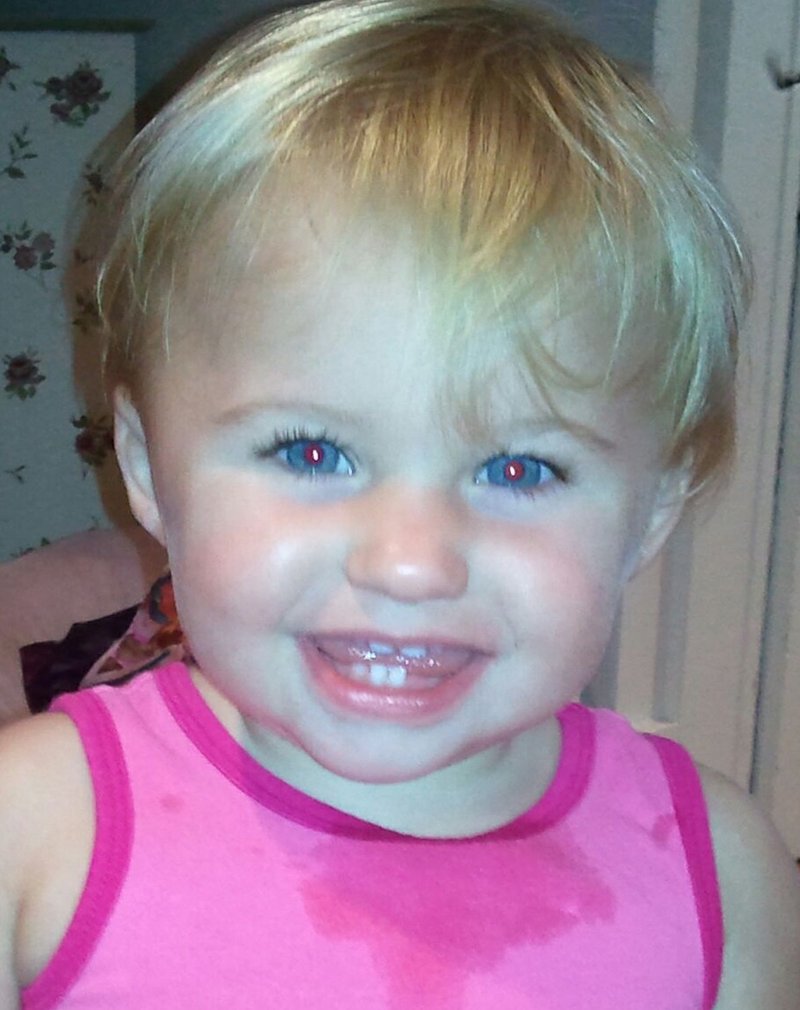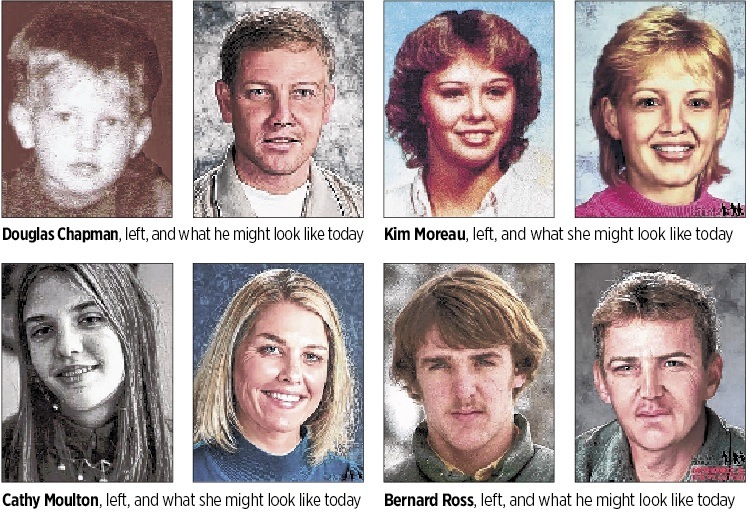There are six unsolved missing-children cases in Maine dating back to the early 1970s, according to the national organization charged with tracking the cases.
• Douglas Charles Chapman of Alfred was 3 when he was reported missing June 2, 1971. Today, he would be 43.
• Cathy Marie Moulton of Portland was 16 when she was reported missing Sept. 24, 1971. Today, she would be 56.
• Kurt Ronald Newton of Manchester was 4 when he was reported missing Sept. 1, 1975. Today, he would be 40.
• Bernard Ross of Ashland was 18 when he was reported missing May 12, 1977. Today, he would be 53. (According to the National Center for Missing & Exploited Children, a provision in federal law allows the center to classify missing persons between age 18 and 21 as missing children, if requested by the parents or police.)
• Kimberly Ann Moreau of Jay was 17 when she was reported missing May 11, 1986. Today, she would be 43.
• Ayla Bell Reynolds of Waterville was 20 months old when she was reported missing Dec. 17, 2011.
In all, 283 children have been reported missing in Maine, and 275 of those children were recovered, according to the National Center for Missing & Exploited Children, a nonprofit organization that serves as a federally mandated clearinghouse for all U.S. missing-children cases.
Of the eight other reported Maine cases, six children are still missing and the other two cases were closed because they were unfounded.
Reports of missing children throughout the United States are staggering.
A 2002 study by the U.S. Department of Justice found that almost 800,000 children were reported missing during a one-year time period — an average of 2,185 children per day.
The report estimates that 340,500 of those children were reported missing for “benign” reasons, and 357,600 children either ran away or were kicked out of their homes. Almost 62,000 of the cases involved children who were lost or injured and unable to return home when they were expected. (The study’s individual estimates add up to greater than the total, because children who were involved in multiple events were included in every category that applies to their case.)
The remaining cases are abductions.
Abductions are broken into two categories: family and non-family. The study estimates that 56,500 children were abducted by family members or people acting on behalf of family members, and 12,100 were abducted by non-family members.
According to the study, a small minority of missing-child cases resulted from so-called “stereotypical” kidnappings.
Those kidnappings involve “someone the child does not know or a slight acquaintance who holds the child overnight, transports the child 50 miles or more, kills the child, demands ransom or intends to keep the child permanently,” according to the study.
Abducted children in that category numbered 115 of nearly 800,000, or about 0.01 percent.
The same study offers a breakdown of ages for the 800,000 children who were reported missing:
• 12 percent were 5 years old or under.
• 14 percent were 6 to 11 years old.
• 30 percent were 12 to 14 years old.
• 44 percent were 15 to 17 years old.
The National Center for Missing & Exploited Children was established by Congress in 1984. It was charged with providing programs and services in cases of missing and exploited children, including the national clearinghouse.
According to Robert Lowery, executive director of the center’s Missing Children’s Division, the center’s database was started in 1986. The names of many children who were reported missing before 1986 have been added to the database at the request of parents or investigators, he said.
The center has been involved in more than 182,000 missing-child cases. Of those cases, more than 169,000 children have been recovered.
Lowery said the center will not give up on finding missing children, even if parents or police believe a child has died.
“The policy of the National Center is we will not close a case until the child has been physically found, regardless of the circumstances,” he said.
Department of Public Safety Spokesman Steve McCausland said the Maine cases remain open.
“As new information comes in, detectives are assigned to follow that information up,” he said.
Copy the Story Link
Send questions/comments to the editors.





Success. Please wait for the page to reload. If the page does not reload within 5 seconds, please refresh the page.
Enter your email and password to access comments.
Hi, to comment on stories you must . This profile is in addition to your subscription and website login.
Already have a commenting profile? .
Invalid username/password.
Please check your email to confirm and complete your registration.
Only subscribers are eligible to post comments. Please subscribe or login first for digital access. Here’s why.
Use the form below to reset your password. When you've submitted your account email, we will send an email with a reset code.